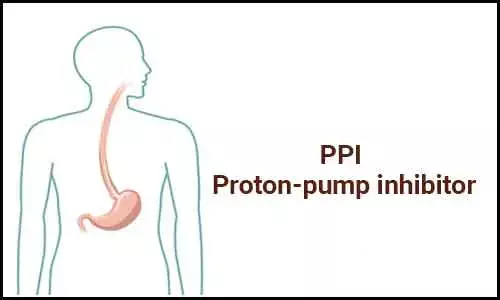- Home
- Medical news & Guidelines
- Anesthesiology
- Cardiology and CTVS
- Critical Care
- Dentistry
- Dermatology
- Diabetes and Endocrinology
- ENT
- Gastroenterology
- Medicine
- Nephrology
- Neurology
- Obstretics-Gynaecology
- Oncology
- Ophthalmology
- Orthopaedics
- Pediatrics-Neonatology
- Psychiatry
- Pulmonology
- Radiology
- Surgery
- Urology
- Laboratory Medicine
- Diet
- Nursing
- Paramedical
- Physiotherapy
- Health news
- Fact Check
- Bone Health Fact Check
- Brain Health Fact Check
- Cancer Related Fact Check
- Child Care Fact Check
- Dental and oral health fact check
- Diabetes and metabolic health fact check
- Diet and Nutrition Fact Check
- Eye and ENT Care Fact Check
- Fitness fact check
- Gut health fact check
- Heart health fact check
- Kidney health fact check
- Medical education fact check
- Men's health fact check
- Respiratory fact check
- Skin and hair care fact check
- Vaccine and Immunization fact check
- Women's health fact check
- AYUSH
- State News
- Andaman and Nicobar Islands
- Andhra Pradesh
- Arunachal Pradesh
- Assam
- Bihar
- Chandigarh
- Chattisgarh
- Dadra and Nagar Haveli
- Daman and Diu
- Delhi
- Goa
- Gujarat
- Haryana
- Himachal Pradesh
- Jammu & Kashmir
- Jharkhand
- Karnataka
- Kerala
- Ladakh
- Lakshadweep
- Madhya Pradesh
- Maharashtra
- Manipur
- Meghalaya
- Mizoram
- Nagaland
- Odisha
- Puducherry
- Punjab
- Rajasthan
- Sikkim
- Tamil Nadu
- Telangana
- Tripura
- Uttar Pradesh
- Uttrakhand
- West Bengal
- Medical Education
- Industry
PPIs can increase risk of autoimmune disorder in children

A new study published in Frontiers in Pediatrics suggests that reduced gut microbiota diversity has been linked to the development of autoimmune disorders (ADs) and proton pump inhibitors (PPIs).
A class of intricate immunological illnesses known as "autoimmune diseases" are defined by inflammation brought on by a lack of tolerance to self-antigens. This study concentrated on type 1 diabetes (DM), juvenile idiopathic arthritis (JIA), autoimmune thyroiditis (AIT), and inflammatory bowel disorders (IBD), four prevalent pediatric ADs with particularly high frequency in Finland. Worldwide, the prevalence of ADs is rising, and Finland has among the highest rates of pediatric DM, AIT, JIA, and IBD.
Proton pump inhibitors are used to reduce stomach acidity in children with a variety of gastroesophageal conditions, including pediatric eosinophilic esophagitis, Helicobacter pylori eradication, erosive esophagitis healing, peptic ulcer disease treatment, and short-term treatment of symptomatic gastro-esophageal reflux disease (GERD). The purpose of this study by Laura Räisänen and colleagues is to determine if PPI usage throughout infancy is related to the emergence of pediatric onset ADs (represented by DM, JIA, AIT, and IBD).
The Finnish Health in Teens (Fin-HIT) cohort, a national school-based cohort designed to examine the health and health-related behaviors of Finnish children, served as the study population for this matched case-control study. The study's conclusion was a primary autoimmune diagnosis by the time the follow-up period ended on December 31, 2018, when the participants' median age was 16 years. The DPR provided information on PPI purchases using ATC numbers beginning with A02B. Omeprazole (A02BC01), pantoprazole (A02BC02), rabeprazole (A02BC04), lansoprazole (A02BC03), and esomeprazole (A02BC05) were among the several PPIs purchased in this study. These PPIs were examined together.
The key findings of this study were:
1. 46 kids (1.9%) out of the 2,389 kids in this study's sample were exposed to PPIs, totaling 95 transactions.
2. Only 11 kids made additional PPI purchases, and 3 of them got ADs.
3. PPI exposures between the time of birth and the index date were linked to the emergence of ADs, particularly IBD and AIT.
4. In the case group, 67% of PPI purchases were made within two years of the diagnosis, and PPI exposures during this time period were significantly more strongly associated with the emergence of an AD.
5. Compared to children who were not exposed to PPIs, PPI-exposed youngsters made more frequent purchases of antibiotics before the age of three.
6. When the backgrounds of PPI-exposed and non-exposed children were examined, no differences were discovered in terms of sex, preterm delivery, or maternal socioeconomic position.
7. Additionally, only 10 kids in this study were exposed to H2-antagonists, hence no additional research on this medicine was done.
Reference:
Räisänen, L., Viljakainen, H., & Kolho, K.-L. (2023). Exposure to proton pump inhibitors is associated with the development of pediatric autoimmune diseases. In Frontiers in Pediatrics (Vol. 11). Frontiers Media SA. https://doi.org/10.3389/fped.2023.1157547
Neuroscience Masters graduate
Jacinthlyn Sylvia, a Neuroscience Master's graduate from Chennai has worked extensively in deciphering the neurobiology of cognition and motor control in aging. She also has spread-out exposure to Neurosurgery from her Bachelor’s. She is currently involved in active Neuro-Oncology research. She is an upcoming neuroscientist with a fiery passion for writing. Her news cover at Medical Dialogues feature recent discoveries and updates from the healthcare and biomedical research fields. She can be reached at editorial@medicaldialogues.in
Dr Kamal Kant Kohli-MBBS, DTCD- a chest specialist with more than 30 years of practice and a flair for writing clinical articles, Dr Kamal Kant Kohli joined Medical Dialogues as a Chief Editor of Medical News. Besides writing articles, as an editor, he proofreads and verifies all the medical content published on Medical Dialogues including those coming from journals, studies,medical conferences,guidelines etc. Email: drkohli@medicaldialogues.in. Contact no. 011-43720751


